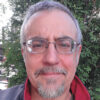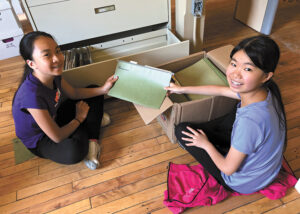Learning happens because learners do something, not because teachers teach. Education is not about teaching—it is about learning.
Of course, we should value teachers! The best ones teach people how to learn. Still, learning is an ongoing process, happening inside, as the learner adapts existing understandings of the world to new experiences or information. Good teachers help learners in that process, but it does not change where learning takes place.
Seeing ourselves as lifelong learners is a path of humility—we do not fully know “the truth” and can always come to new, hopefully better, understandings. The point is to improve our earlier understanding. But what is the purpose of that improved understanding? As Christians we have a specific purpose: to learn to become more like Jesus. Our minds are gifts to help that process.
We live in a society that constantly teaches things, some of which are not consistent with Christian discipleship. One winter the grade 1 teacher held Entrepreneurship Day. My six-year-old made paper sweaters, mittens and toques and was supposed to “sell” them to family. There are good skills in that exercise, but it also normalizes a hidden curriculum of economics and profit-making, which I found profoundly troubling. Where were the lessons on nonviolence, caring for creation and classroom democracy that I would support?
Learning involves unlearning. We are not blank slates. Learning also involves self-analysis about the biases and interests that do not improve understanding. For example, several studies have shown that Canadians working in the oil and gas sector have a higher level of suspicion about climate science than do their peers in other sectors. This holds true even for engineers and geologists. When personal interest or strongly-held past understandings are at stake, it is more likely that people will discount new information.
Similar barriers exist on topics as diverse as same-sex relations, Israel-Palestine or Indigenous reconciliation in Canada, especially when learning requires changing our minds from what we thought was a good understanding.
The learning process should cause us to change our minds at times. In Romans 12, Paul asked us to be transformed by the renewing of our minds. It was not his expectation that the mind remain the same. When he asked the Philippians to think on what is noble, true, honourable, worthy of praise, pure or good, he expected them to learn what is noble, true, good and so on. And, of course, to be changed (transformed) by such learning.
Consider another contentious issue. Some years ago, I co-chaired the Mennonite Church Canada working group on climate change and fossil fuel divestment. We did not recommend divestment at the time although all agreed that the changing climate was serious, would affect the poor and marginalized the most, and was driven by fossil fuel use. I agreed with the recommendation because the livelihoods of so many brothers and sisters in the churches were entwined with the oil and gas industry. That was a pastoral recommendation, to give time to learn, be transformed, and eventually act on new understanding. Yet, in the meantime, climate change has become a climate crisis.
Learning is not just about acquiring new information. What is truly learned results in changed perceptions of the world and leads toward action. Abstract or head knowledge, such as faith without works, is rightly criticized as inauthentic.
Randolph Haluza-DeLay has worked in outdoor education and higher education and is learning to like his new home in Toronto.
Read more Mind and Soul columns:
What is enough?
Is it moral to bike?
Majority-world theology
Vaccination colonialism
What does UN ‘peace’ mean?









Leave a Reply
You must be logged in to post a comment.